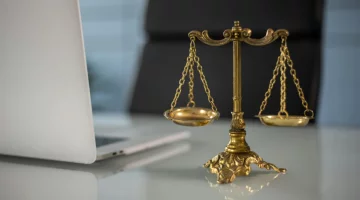Understanding Your Rights After a Personal Injury
Accidents can happen anytime and anywhere, often causing serious physical, emotional, and financial harm. When these accidents occur due to someone else's negligence, you have the right to seek compensation for the damages you have suffered. Understanding your rights after a personal injury is crucial to ensure you are protected and receive the compensation you deserve.
The Basics of Personal Injury Law
Personal injury law encompasses a broad range of cases, including car accidents, slip and fall accidents, medical malpractice, and dog bites. The law allows injured individuals to seek compensation for the damages incurred as a result of someone else's negligence. These damages may include medical bills, lost wages, pain and suffering, and property damage.
Personal injury cases can be complex and challenging to navigate, especially if you are dealing with severe injuries. It is crucial to understand the basics of personal injury law to ensure that your rights are protected, and you receive the compensation you deserve.
What Constitutes a Personal Injury
A personal injury is any harm or injury caused by the negligence, recklessness, or intentional actions of another person or entity. In other words, if someone fails to act in a way that a reasonable person would, and this failure results in an injury to you, you have the right to seek compensation.
It is essential to note that personal injury cases are not limited to physical injuries. They can also include emotional distress, psychological injuries, and damage to reputation.
Common Types of Personal Injury Cases
Personal injury cases are widespread and can include car accidents, slip and fall accidents, dog bites, medical malpractice, and product liability. Each of these types of cases has its unique considerations, but all are based on proving negligence or liability.
Car accidents are one of the most common types of personal injury cases. They can result in severe injuries, including broken bones, whiplash, and traumatic brain injuries. Slip and fall accidents can happen anywhere, from grocery stores to office buildings. These accidents can result in injuries such as broken bones, sprains, and head injuries.
Dog bites can be severe and can result in permanent scarring and disfigurement. Medical malpractice cases arise when a medical professional fails to provide proper care, resulting in injury or death. Product liability cases occur when a defective product causes injury or death.
The Role of Negligence in Personal Injury Claims
Negligence is a crucial element in personal injury cases. It refers to a failure to exercise reasonable care by the responsible party. To prove negligence, you must show that the other party had a duty of care to you, the duty of care was breached, and the breach resulted in your injury.
For example, in a car accident case, the responsible party has a duty to obey traffic laws and drive safely. If they fail to do so and cause an accident, they have breached their duty of care, and you may have a personal injury claim.
It is essential to work with an experienced personal injury attorney to build a strong case and ensure that your rights are protected. Your attorney can help you gather evidence, negotiate with insurance companies, and represent you in court if necessary.
The Personal Injury Claim Process
The process for making a personal injury claim can be complex and time-consuming. It involves several steps and requires careful attention to detail to ensure that you receive the compensation you deserve. Here is a more detailed look at each stage of the process:
Reporting the Injury
Reporting the injury is the first step in the personal injury claim process. It is essential to report the injury to the person or entity responsible as soon as possible after the accident. This may involve filing a police or incident report, notifying a business owner, or contacting a healthcare provider. Reporting the injury documents the incident and provides a record of the harm suffered. It also helps to establish that the injury was caused by the negligence or wrongdoing of another party.
Gathering Evidence and Documentation
Once the injury has been reported, the next step is to gather evidence and documentation to support your claim. This may include medical records, witness statements, photographs and videos of the accident scene, and any other evidence that demonstrates negligence or liability. It is important to gather as much evidence as possible to build a strong case.
Filing a Personal Injury Claim
The actual filing of a personal injury claim involves submitting a written demand letter to the responsible party or their insurance company. The letter outlines your claim, including the damages you have suffered and the amount of compensation you are seeking. It is important to have a skilled personal injury attorney draft and send this letter to ensure that it meets all legal requirements.
Negotiating a Settlement
After the claim is filed, the parties may engage in settlement negotiations to resolve the case without going to court. These negotiations may involve back-and-forth communications to reach a fair settlement amount. It is important to have an experienced personal injury attorney negotiate on your behalf to ensure that you receive the maximum compensation possible.
During settlement negotiations, the responsible party or their insurance company may offer a settlement amount. Your attorney will review the offer and advise you on whether it is fair and reasonable. If the offer is not acceptable, your attorney will continue to negotiate on your behalf.
Going to Trial
If a settlement cannot be reached, the case may proceed to trial. During the trial, both parties will present evidence and arguments to a judge or jury, who will make a final decision on the case. It is important to have a skilled personal injury attorney represent you at trial to present your case effectively and maximize your chances of success.
In conclusion, the personal injury claim process can be complex and challenging. However, with the help of an experienced personal injury attorney, you can navigate the process and receive the compensation you deserve for your injuries and damages.
Your Legal Rights and Protections
It is crucial to understand your legal rights and protections after an injury. Fortunately, the law provides numerous protections to injured individuals.
When you are injured, it can be a stressful and overwhelming experience. You may be dealing with physical pain, emotional trauma, and financial difficulties. However, it is important to remember that you have legal rights and protections that can help you through this difficult time.
Right to Compensation
The right to compensation ensures that you receive monetary damages for the harm you have suffered. This compensation covers both economic and non-economic damages, such as medical bills, lost wages, pain and suffering, and emotional trauma. It is important to note that the amount of compensation you receive will depend on the severity of your injuries and the circumstances of your case.
In some cases, you may be eligible for punitive damages, which are designed to punish the person or entity responsible for your injuries. Punitive damages are awarded in addition to compensatory damages and are intended to deter others from engaging in similar behavior.
Right to Legal Representation
One of the most vital rights is the right to legal representation. An experienced personal injury attorney can help you navigate the complex legal process, provide guidance and support, and represent you in court if necessary. Your attorney can also negotiate with insurance companies and other parties on your behalf to ensure that you receive fair compensation for your injuries.
It is important to choose an attorney who has experience handling personal injury cases and who has a track record of success. Your attorney should also be someone you feel comfortable working with and who is willing to listen to your concerns and answer your questions.
Right to a Fair Trial
The right to a fair trial ensures that both parties have an equal opportunity to present evidence and arguments. This right is fundamental to ensuring that the justice system works fairly and equitably. In a personal injury case, a fair trial means that you have the opportunity to present evidence of the other party's negligence or wrongdoing and to demonstrate the extent of your injuries and damages.
Your attorney will play a critical role in ensuring that your right to a fair trial is protected. They will work to gather evidence, interview witnesses, and prepare arguments that support your case.
Statute of Limitations
It is essential to be aware of the statute of limitations for personal injury cases. This is the time limit within which you must file a lawsuit after being injured. The statute of limitations varies depending on the state and the type of accident, so it is crucial to seek legal advice as soon as possible.
If you fail to file a lawsuit within the statute of limitations, you may lose your right to seek compensation for your injuries. This is why it is important to consult with an attorney as soon as possible after being injured.
In conclusion, understanding your legal rights and protections after an injury is crucial. With the help of an experienced personal injury attorney, you can navigate the legal process and ensure that your rights are protected. Remember that you have the right to compensation, legal representation, a fair trial, and to seek justice for your injuries.
Conclusion
Understanding your rights after a personal injury is crucial to ensure you receive the compensation you deserve. By following the steps outlined in this article and seeking legal representation, you can protect your rights, receive fair compensation, and move forward after an injury.
More to Read:
Previous Posts:



